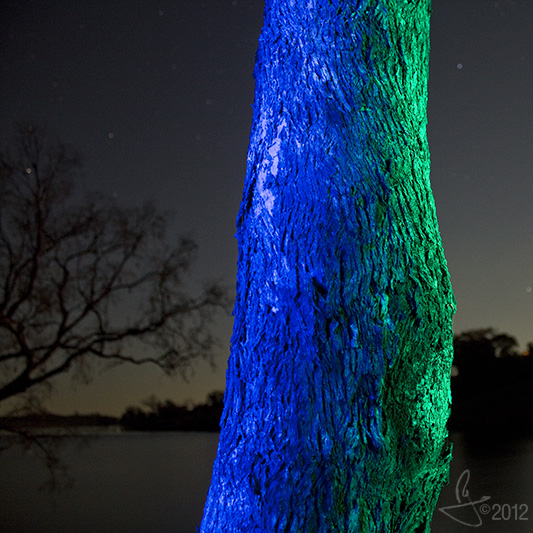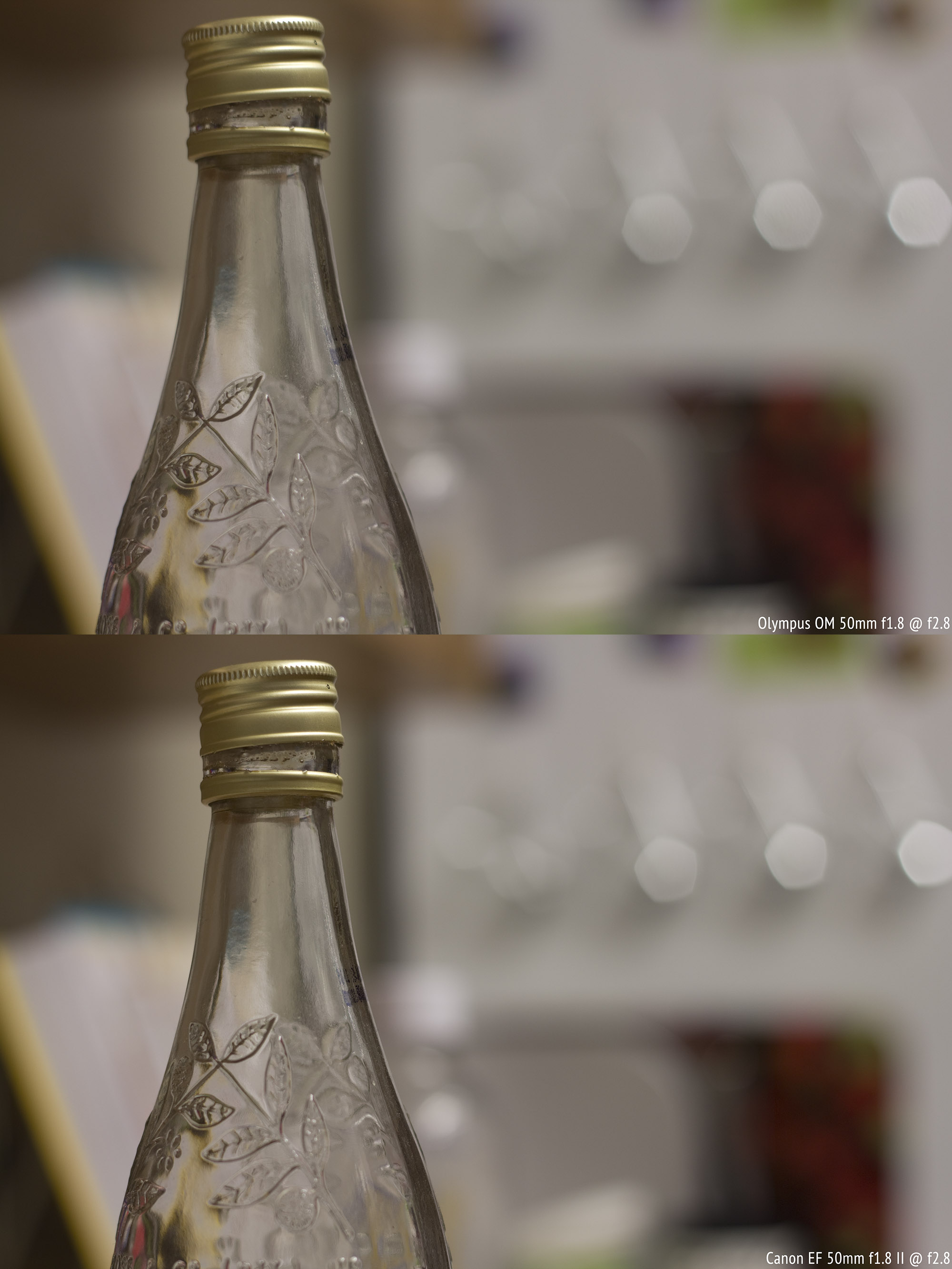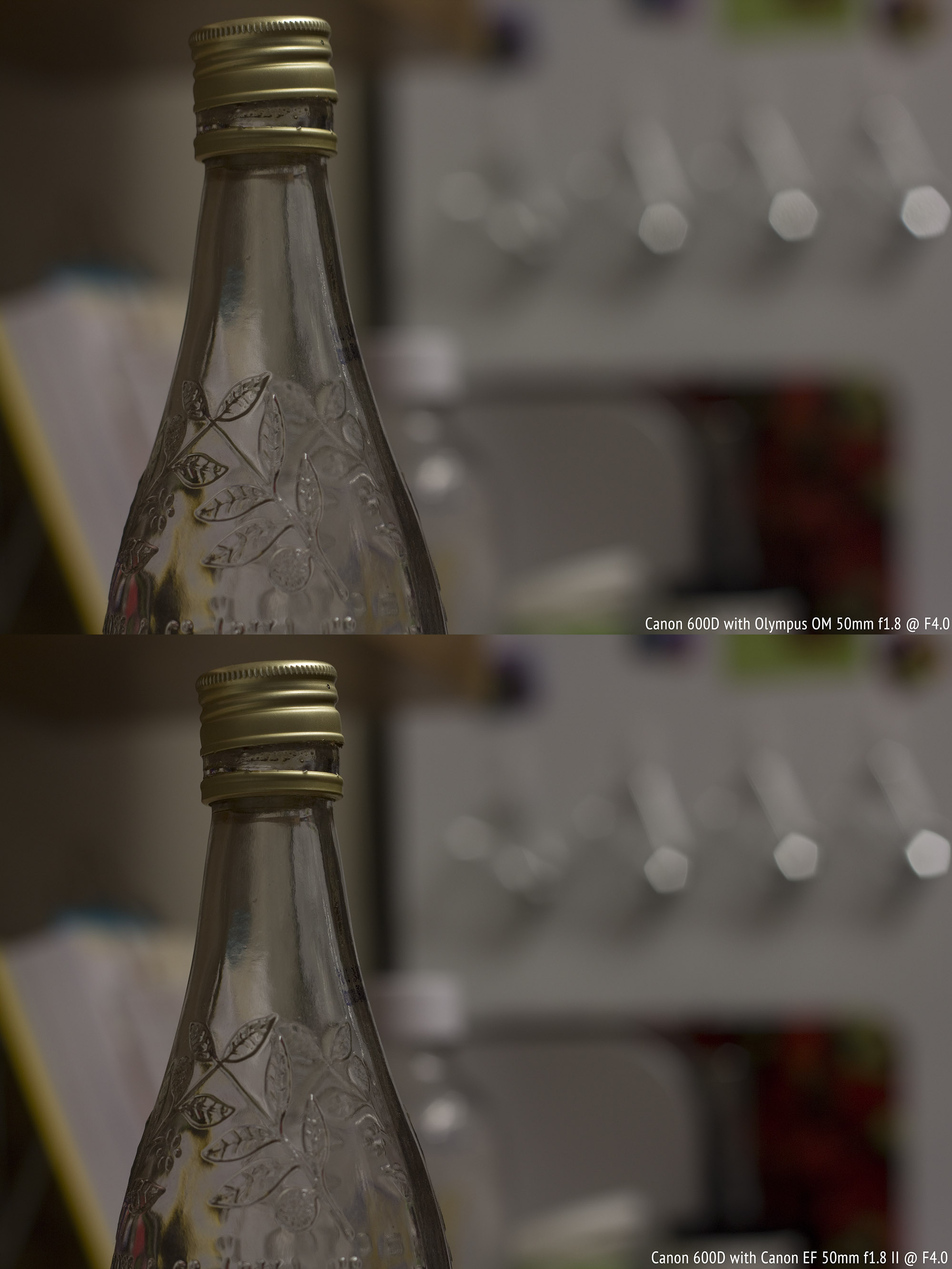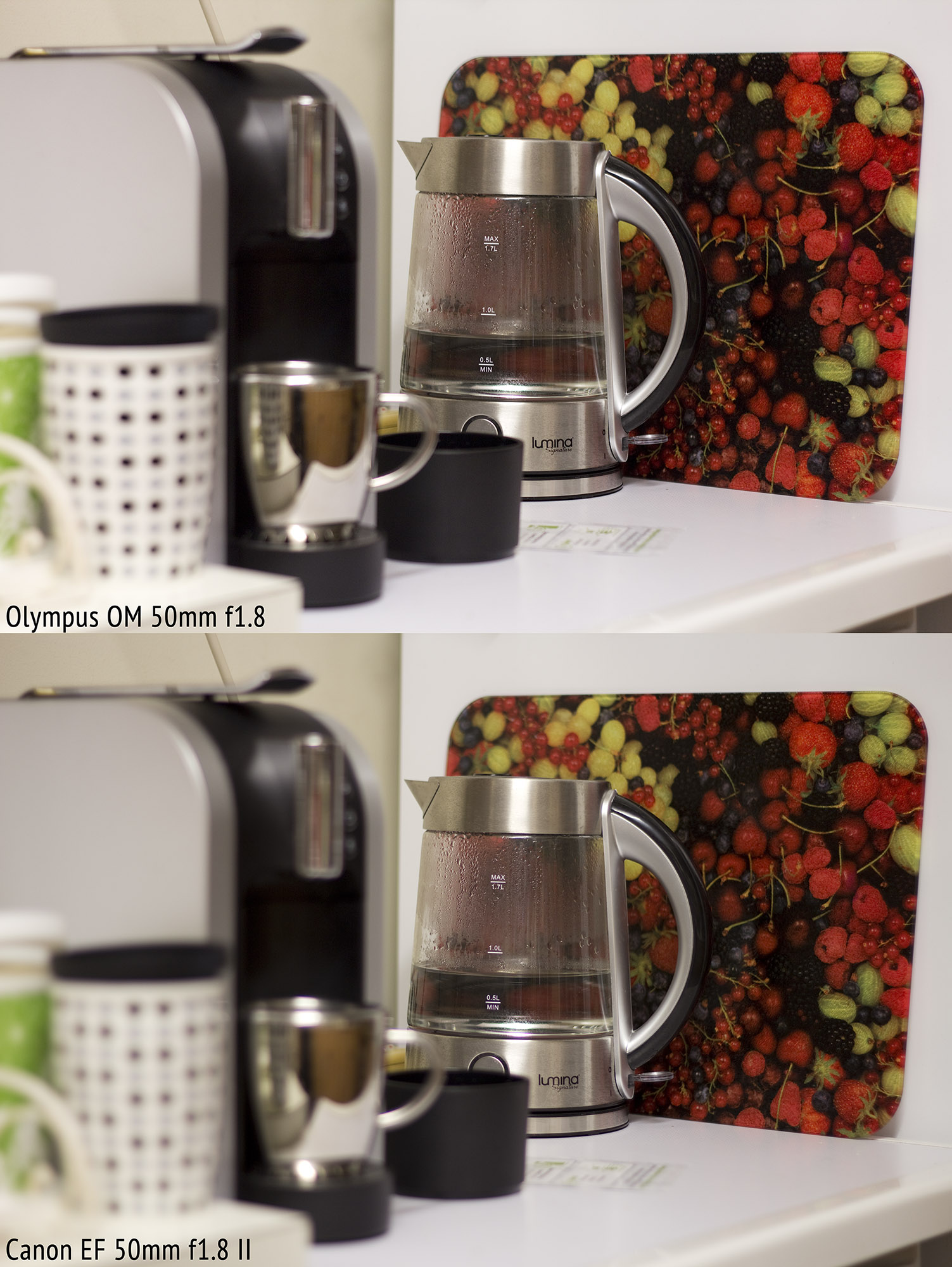50mm lens experiments and shenanigans.
Decided to do some hands-on tests so I could see for myself the difference in crop factors and lens quality between the Olympus OM 50mm f1.8 and the Canon EF 50mm f1.8 II lenses. This post contains a lot of images and may be boring if you're not into camera lenses and pixel scrutinising -- hit the jump if you're interested in the results.
These shots demonstrate the difference in crop factor (focal length multiplier) between the Canon APS-C and Olympus Four Thirds sensor sizes. I've scaled the bottom image down to the same "size" as the top one, clearly demonstrating the difference between the Canon (1.6x) and Olympus (1.84x) crops.
Never realised how much was actually lost using a Four Thirds sensor.
Two shots from the Olympus E-510, comparing a 50mm zoom on my telephoto lens (the only other lens I have capable of a 50mm focal length) and "50mm" on the old OM legacy lens.
When I first bought the old OM lens and adaptor, one of the things I had read about was a considerably different focal length resulting on the 4/3 cameras, but this demonstrates that the difference is actually quite minor.
Yes, I realise the top photo is overexposed.
Olympus vs. Canon 50mm f1.8 lenses.
There's a lot of criticism of the Canon lens for having pretty nasty bokeh (out of focus areas) because of its five-bladed aperture, but all in all, it's not too bad, in my opinion. The OM lens loses some sharpness, which is to be expected, but I think I still prefer its result. I find that the Canon 50mm tends to get less pronounced glowing edges on the highlight hotspots.
Same test, same lens, different aperture. Reduced to f4.0, the Canon EF 50mm's bokeh looks significantly nastier than the Olympus OM 50mm's, at least in my opinion. There seems to be a tiny bit of light leaking around the aperture blades on the Canon, making the corners of the highlight hotspots quite harsh, really accentuating the five aperture blades. At the same camera settings, the Canon's image at f4.0 is undoubtedly sharper, though.
Direct comparison between the Olympus and Canon 50mm lenses. All in all, the difference for this kind of image is pretty insignificant. Auto white balance seems to have thrown a yellow cast to the Canon photo.
OM, pros: - $50 from Ebay + $5-$35 for adaptor - More pleasing bokeh. - Quality construction, from the days where stuff was made properly, ergo: sturdier lens. (Lens mount/adaptor, not so much, though) - Very trendy
OM, cons: - Adaptor is atrocious, but for this I can blame someone on Ebay from Hong Kong - Image slightly less sharp than Canon - No auto focus function
Canon, pros: - $90 - Auto focus - Sharper image - Ludicrously lightweight - Adaptor not required, obviously
Canon, cons: - While autofocus exists, it sounds like it's grinding up Legos inside there - Very cheap construction; very cheap lens
Overall, I think I still prefer the Olympus OM 50mm lens. The Canon one just seems utterly disposable in comparison.
Dust Mote Fallen
Some more tunage, in this case a strange, rather eclectic acoustic guitar and piano piece with strained scales and some hearty piano thumpings. Sometimes the simplest things are the most pleasant. This is another part of "Potentia II: Extras", a sequel "album" to "Potentia". You can find a bunch of stuff on my SoundCloud page, should you want to go listen to it.
Thanks for your time!
Olympus legacy lens video experiments
Here's another quick YouTube dawdle. In this case, I'm experimenting with using my Olympus OM 50mm f1.8 lens for video on my Canon 600D. Apart from some exposure issues which are easy to deal with, it works splendidly and I'll be exploiting its smooth focus and awesome depth of field in the future! Music is an original, A Step Backwards, which you can find here in its entirety, should it take your fancy. A bunch of other original tunes are over on my SoundCloud.
Educational arcs
I have a new annoyance. It's another one of those pieces of English that no one seems to know how to use. It's deeply misunderstood. It's the term "learning curve". I'm continually, it seems, encountering people who believe that because something involves learning, that the entire project can be described as a "learning curve". "It's a learning curve." "This is difficult. It's a learning curve."
This is not correct.
It may have a learning curve. In fact, I guarantee it has one.
A learning curve is not the mere existance of learning. A learning curve is a way of describing the increasing (or decreasing) difficulty in the learning process for a given activity. A steep learning curve exists when a task is difficult to master, a more gentle curve when the job is easier.
You can read about learning curves in far more detail than I care to go into over at Wikipedia, the bastion of opinion-disguised-as-fact and the bane of high school paper graders world-wide.
If you have a new skill to learn, remember that it has a learning curve, and if you want to complain about it, it's probably a steep one.
Teleportation effects, as you do
I've been screwing around in Final Cut again. This time, I've whipped up a fairly craptacular Star Trek-style teleporter effect. Ingredients:
- Scrunched up tin-foil waved in front of the camera to create shiny particles
- Footage of myself wandering around the back yard like an idiot, hoping the neighbours don't look over the fence
- A mask of my shape, used to isolate the shiny particles to only appear where I'm standing
- A sound effect created in GarageBand by layering all sorts of instruments and pitchbending them in directions they don't want to be bent
- An insert shot of my iPhone with a Star Trek LCARS graphic on it, with some beepy sound effects
I had plans to make more of these. We'll see. For now, enjoy.
(Also, I'm aware that the iPhone's interface appears when I press the buttons. It was just an image stored in my gallery. Next time, I'll motion track a screen replacement.)













